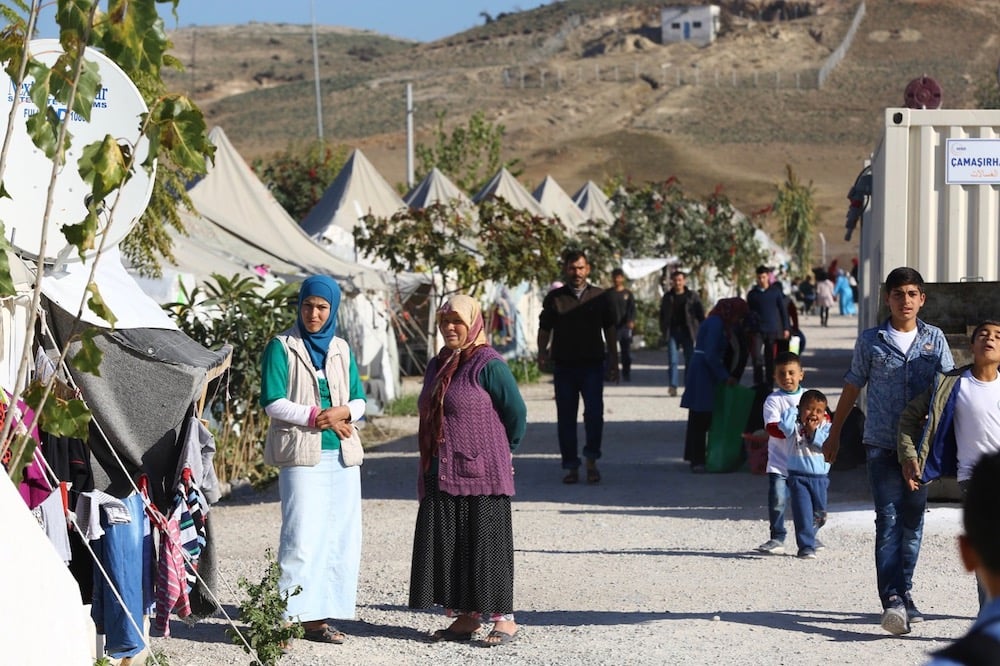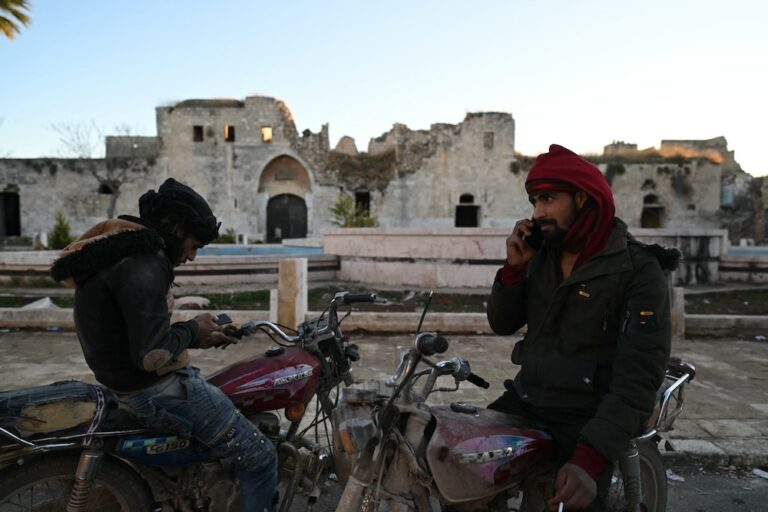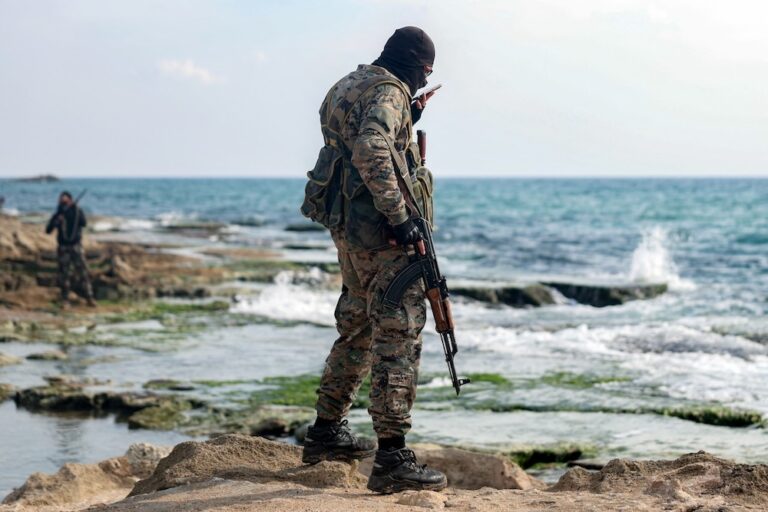"Sending them back to Syria is to send them back to imprisonment, disappearance, or even death," says RSF.
This statement was originally published on rsf.org on 28 January 2023.
Reporters Without Borders (RSF) is concerned about two Syrian journalists held in refugee camps in Turkey who could be sent back to Syria, and calls on the Turkish government to act responsibly by preventing any expulsion of journalists to Syria and by immediately guaranteeing their safety in Turkey.
In May 2022, Turkish President Recep Tayyip Erdogan promised the “voluntary return of a million Syrian refugees to their country” – a promise that now poses a direct threat to the lives of Syrian journalists in Turkey, especially the two currently detained in temporary camps near Syria’s northern border.
One of them is Khaled Obeid, who was arrested by Turkish police on 10 January and has been held ever since in a camp in the southern city of Osmaniye. The other journalist prefers not to be identified because he fears for his safety. Ever since their arrest, they have been repeatedly threatened with expulsion and have been pressured to sign documents accepting “voluntary” return.
“The safety of refugee journalists is Turkey’s responsibility,” said Jonathan Dagher, the head of RSF’s Middle East desk. “Let’s be clear: sending them back to Syria is to send them back to imprisonment, disappearance, or even death. We call on the Turkish authorities to ensure that no Syrian journalists are sent back to Syria, and we call for the release of Khaled Obeid and every other journalist detained in these camps.”
Aged 31 and a refugee in Turkey since August 2021, Obeid tried to cross a police checkpoint in Osmaniye on 10 January 2023 with the aim of reporting a story for the Creative Syrians website. Although in possession of a copy of his valid temporary protection ID (known as a Kimlik) and an official statement of the theft of the original document, he was taken into custody by the police, who immediately began beating him and insulting him. When he showed them his press card and explained that he is a journalist, one of the policemen threw it to the ground in mockery, he said. The next day, he was transferred to the refugee camp in Osmaniye, known as the “temporary accommodation centre.”
Since then, the camp authorities have exerted constant physical and psychological pressure on Obeid to sign the voluntary return form. He says he is subjected to daily interrogation sessions in which he is told he will be sent back to Syria whether he signs the form or not. Another camp detainee contacted by RSF was recently transported from the camp to Syria on a bus.
After consulting with the Turkish foreign ministry in Ankara, the Turkish embassy in Paris told RSF that there was “no question of extraditing or expelling” the two journalists. Obeid was being held in the “temporary accommodation centre” because of a “public order breach,” the embassy said.
“I will be sent to my death”
Obeid’s career as a journalist dates back to 2014 when he began working in Homs, a city in the centre of western Syrian, as a correspondent for independent media outlets based abroad such as Orient News and Syria TV. With his wife and four daughters living in Istanbul since 2016, he spent many years to-ing and fro-ing between Syria and Turkey but, after a murder attempt in Idlib, in northwestern Syria, on 25 April 2021, he sought permanent refuge in Turkey.
“Those who tried to kill me will not leave me alone if I return to Syria,” he told RSF, speaking in the refugee camp. “I’m still haunted by that murder attempt. They even threatened me in Istanbul. If I’m sent back to Syria, I will be sent to my death.”
If expelled, he will be in danger regardless of the border crossing used. At the Tell Abyad or Bab al Salam border crossings, he would be handed over to the Turkish-backed rebel Syrian National Army, which he has criticised extensively in Facebook posts in the past year for its mismanagement of the region in northern Syria that it controls.
The other border crossing that could be used is Bab al-Hawa, which is controlled by Hay’at Tahrir al-Sham (HTS), an Islamist militant coalition formed from various groups including Jabhat al-Nusra. When Obeid was reporting in the field in northwestern Syria in 2017, he was arrested by Jabhat al-Nusra, who interrogated and intimidated him for three days and then finally released him, but only after deleting the contents of his phone and cameras.



